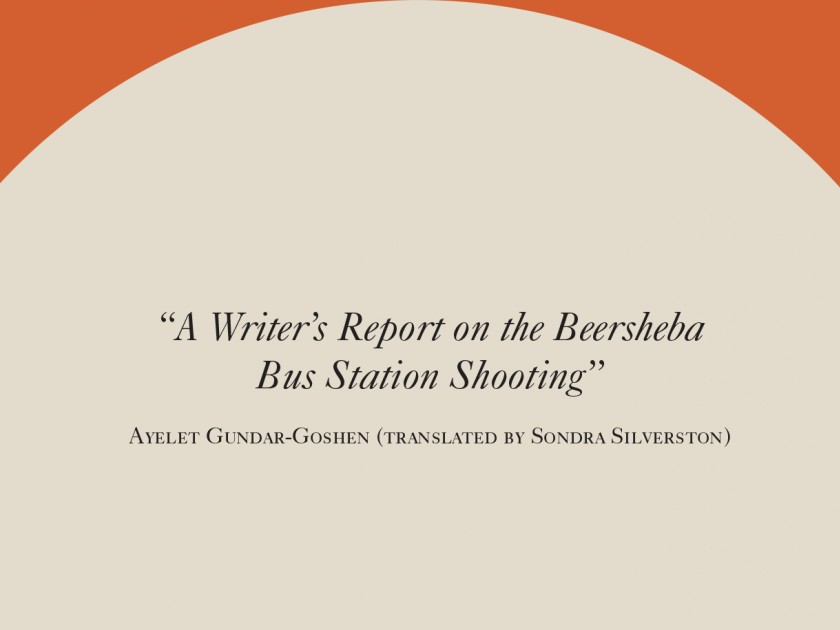
The below piece was produced as a part of a Passover supplement for Dwelling in a Time of Plagues in response to the idea of liberation from the plague of xenophobia.
Haftom Zarhum was twenty-nine years old on the morning he arrived at the central bus station in Beersheba. Four years earlier, he had still been in Eritrea, doing the compulsory, indefinite military service imposed on its citizens. Zarhum fled Eritrea to Israel, crossed the border from Sinai illegally, and found work in a plant nursery. He sent the money he earned to his family, who had remained in Africa. On Sunday, October 18, 2015, he arrived at the central bus station in Beersheba on his way to renew his conditional release visa.
Zarhum didn’t know that Muhannad al-Aqabi had come to the bus station on the same day, armed with a pistol. Al-Aqabi followed a nineteen-year-old soldier, Omri Levy, into the restroom and shot him to death. Then he grabbed the soldier’s automatic rifle and opened fire on the passersby in the station, who ran for their lives. Haftom Zahum was one of them.
But Zarhum wasn’t only an innocent passerby. He was also a Black man. And a foreigner. The security services, seeing him running away, didn’t think twice before shooting him. The innocent young man collapsed onto the bus station floor.
The bullets that entered Haftom Zarhum’s body were only the beginning. A crowd gathered around the fallen man, calling for death to the terrorist, and the lynch began: they kicked him in the head and threw chairs and benches at his body. An Arab who worked in the central bus station testified later that he’d suspected the man being attacked wasn’t a terrorist, but he was afraid to say anything that might cause the angry mob to leave Zarhum and turn on him instead.
Haftom Zarhum was declared dead in the hospital. The bullets had killed him. Two members of the lynch mob were acquitted in court. The immigrant’s foreign appearance had misled them, the lawyers said, had made them think he was a terrorist. But Haftom Zarhum wasn’t a terrorist. He was merely a foreigner. A refugee.
To download the full Passover supplement, which includes ten authors and ten artists responding to ten modern plagues, please click here.
Dwelling in a Time of Plagues is a Jewish creative response to real-world plagues of our time. Collectively, the commissions in this constellation of art projects around North America grapple with contemporary crises: the global pandemic, institutional racism, xenophobia, ageism, forced isolation, and the climate crisis. Dwelling is generously supported by CANVAS.
Ayelet Gundar-Goshen is the author of The Liar and Waking Lions, which won the Jewish Quarterly – Wingate Prize, was a New York Times Notable Book, and has been published in seventeen countries. She is a clinical psychologist, has worked for the Israeli civil rights movement, and is an award-winning screenwriter. She won Israel’s prestigious Sapir Prize for best debut.